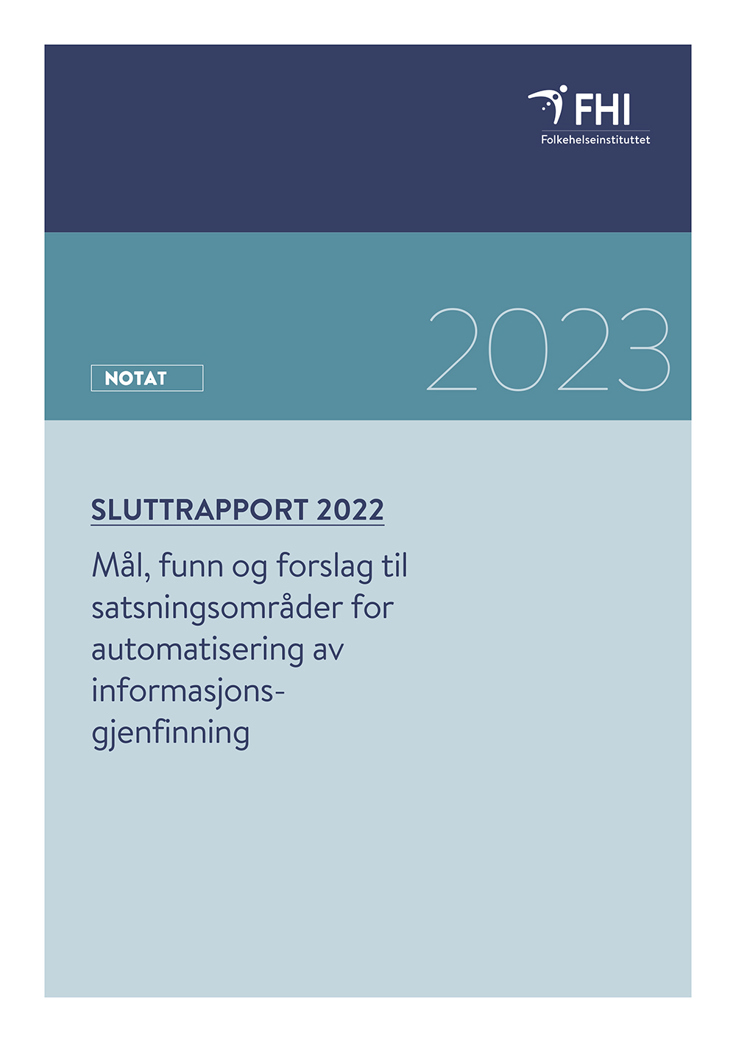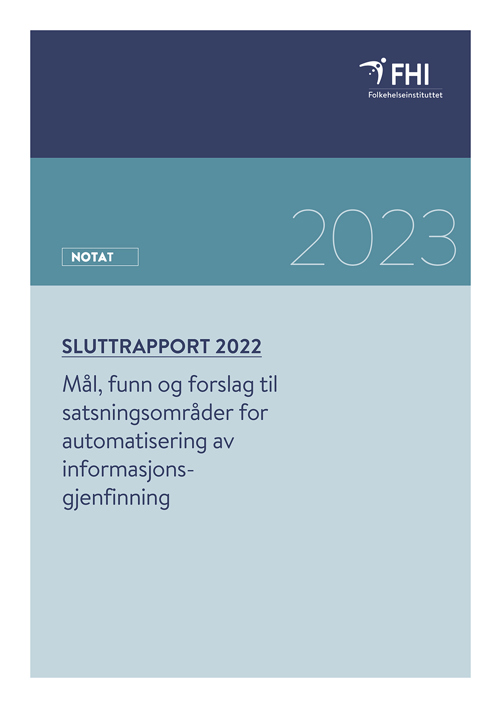Aims, findings, and suggested target areas for automation of information retrieval: final report 2022
Note
|Published
This paper may be relevant to anyone who works with information retrieval for systematic reviews, and possibly also to developers of digital tools for automating literature searches.
Key message
Automation of information retrieval has the potential to increase the efficiency of systematic reviews and health technology assessments (HTA). A team in the Cluster for Reviews and Health Technology Assessments at the Norwegian Institute of Public Health therefore conducted a project to 1) build basic competence in the field of artificial intelligence, and 2) create an overview of available digital tools with elements of artificial intelligence that can automate all or parts of the search process for systematic reviews and HTA.
The project team reviewed 82 digital tools. We found four tools that could potentially automate parts of a search process: 2Dsearch, Nested Knowledge, litsearch and Quertle. We discussed strengths and weaknesses of each of these tools. In addition, we described the catalogue OpenAlex.
Many digital tools automate some of the technical parts of information retrieval. We found no tools that handle the intellectual trade-offs associated with the search process. We believe that none of these tools will signif-icantly simplify or streamline our current practice for information retrieval in the Division for Health Services at the Norwegian Institute of Public Health.
We will continue to track the development of digital tools for information retrieval and evaluate our cur-rent search practices for any necessary changes related to the information retrieval process. In addition, we will look further into the potential usefulness of OpenAlex via EPPI-Reviewer as a source to search for our systematic reviews and HTA.

